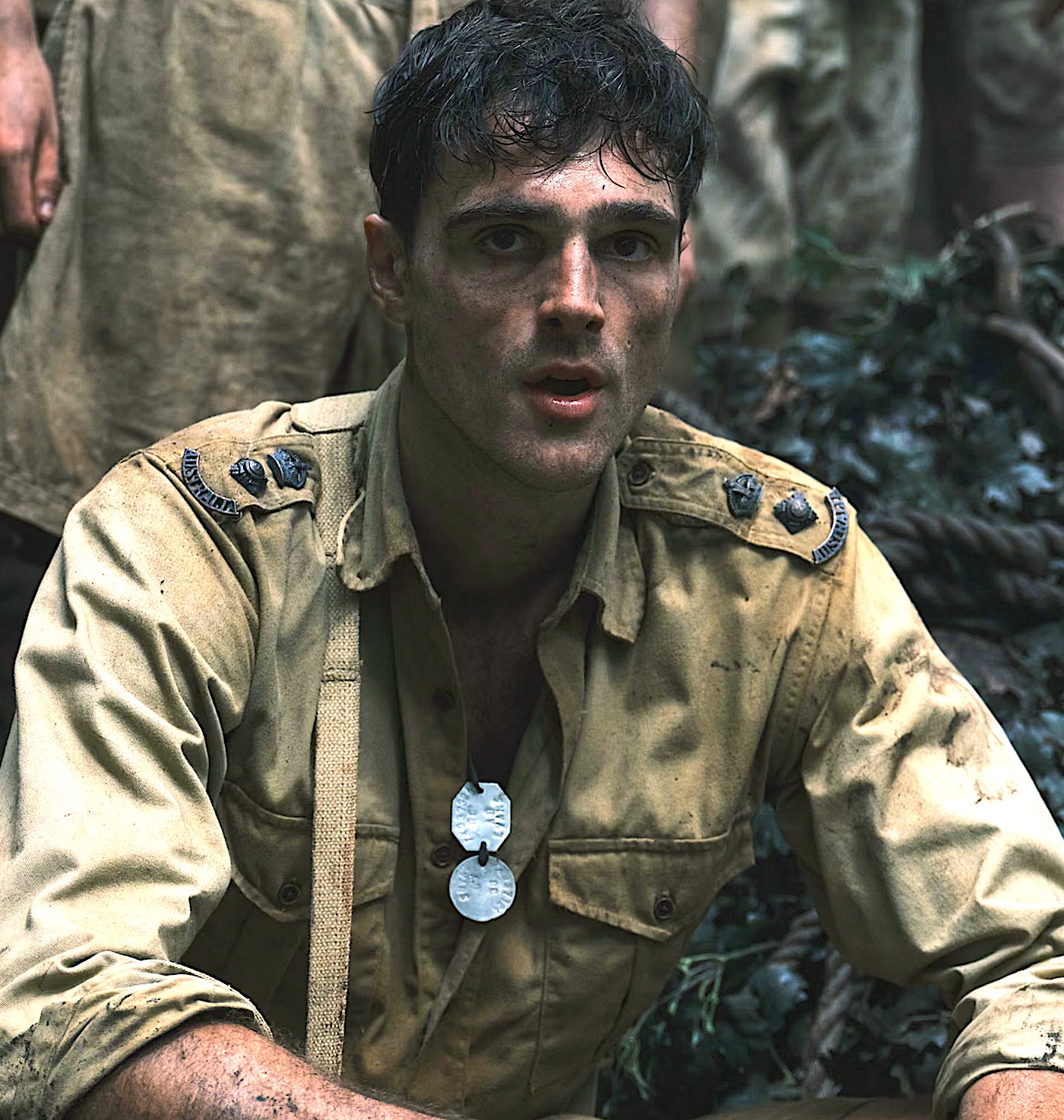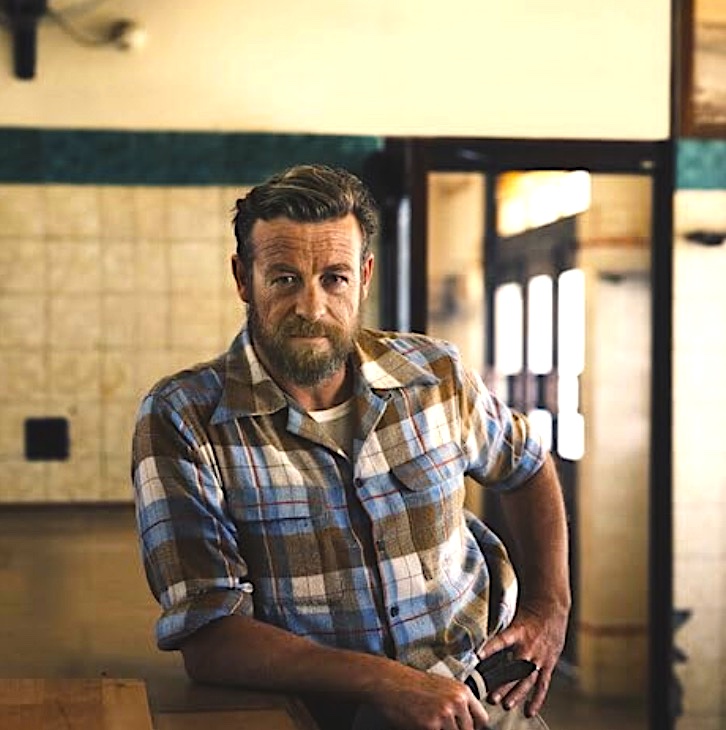Readers of Richard Flanagan’s Booker-winning novel will be familiar with its themes of war, extreme suffering, ageing, memory, fidelity and infidelity, as it roves over the decades from World War Two to the late Eighties.
Flanagan based much of the book on his father’s experiences as a prisoner-of-war of the Japanese, forced to work as a slave labourer building the Burma railway, and his experiences are rendered in hellish detail by director Justin Kurzel in cahoots with screenwriter Shaun Grant. Kurzel’s younger brother Jed composed the show’s haunting and regretful soundtrack, a key ingredient in the dramatic mix.
 The book’s central character, Dorrigo Evans, duly takes centre-stage here. He’s played in his youth by Jacob Elordi (pictured left, also familiar as Elvis Presley in Sofia Coppola’s Priscilla), a young medic in the Australian army who becomes a kind of hero for his efforts to ease the sufferings of his fellow-prisoners. At the opposite end of a frequently-jumping timeline, the ageing Dorrigo is transformed into Ciaran Hinds (who’s excellent, though bears no physical resemblance to Elordi). He has become a distinguished surgeon who has settled into a comfortable if sterile life with his wife Ella (Heather Mitchell), though he’s having a listless affair on the side with Lynette (Essie Davis, the wife of a colleague.) Playing the young Ella who first takes his fancy is Olivia DeJonge, who coincidentally happened to play Priscilla Presley in Baz Lurhmann’s Elvis.
The book’s central character, Dorrigo Evans, duly takes centre-stage here. He’s played in his youth by Jacob Elordi (pictured left, also familiar as Elvis Presley in Sofia Coppola’s Priscilla), a young medic in the Australian army who becomes a kind of hero for his efforts to ease the sufferings of his fellow-prisoners. At the opposite end of a frequently-jumping timeline, the ageing Dorrigo is transformed into Ciaran Hinds (who’s excellent, though bears no physical resemblance to Elordi). He has become a distinguished surgeon who has settled into a comfortable if sterile life with his wife Ella (Heather Mitchell), though he’s having a listless affair on the side with Lynette (Essie Davis, the wife of a colleague.) Playing the young Ella who first takes his fancy is Olivia DeJonge, who coincidentally happened to play Priscilla Presley in Baz Lurhmann’s Elvis.
The series comprises five episodes which clock in at around the 40-minute mark, but it’ll leave an indelible mark on you, though whether that’s a good or a bad thing will depend on the viewer. It contains many gruelling scenes of pain and degradation, not least a ghastly anaesthetic-free amputation of a gangrene-infected leg with a hacksaw. One particular episode of a young soldier, already weakened by cholera, being systematically beaten to death by sadistic Japanese guards while his comrades can only watch helplessly is one of the most disturbing and horrific scenes I can recall seeing on either the large or small screen.
It’s experiences like this which make Dorrigo understandably chippy, even decades later, when he’s interviewed by a cocky young TV journalist who gauchely tries to downplay his wartime experiences (her argument is basically that what he went through wasn’t as bad as being nuked in Hiroshima), to which he can only reply that if you weren’t there you can’t know. The moment is especially piquant for him because the peg for the interview is the publication of a book of drawings of the sick and emaciated inmates of the Burma rail-workers’ camp, made by a now-deceased comrade.
 It’s this intolerable burden of back-story and anguished memories which has found him eaten away to the core, a sort of fellow-traveller in his own life who has never quite managed to glue the pieces back together after his shattering experiences in the sweltering Far Eastern jungles. In a show littered with literary references to Shakespeare, Sappho and Catullus, Dorrigo is experiencing his own recherche du temps perdu, his imagination often flooded with memories of his passionate pre-war love affair with Amy (Odessa Young), the much younger wife of his uncle Keith (Simon Baker, pictured above).
It’s this intolerable burden of back-story and anguished memories which has found him eaten away to the core, a sort of fellow-traveller in his own life who has never quite managed to glue the pieces back together after his shattering experiences in the sweltering Far Eastern jungles. In a show littered with literary references to Shakespeare, Sappho and Catullus, Dorrigo is experiencing his own recherche du temps perdu, his imagination often flooded with memories of his passionate pre-war love affair with Amy (Odessa Young), the much younger wife of his uncle Keith (Simon Baker, pictured above).
He has a final poignant glimpse of her across a crowd of commuters heading for a train, their eyes meeting fleetingly before she’s gone. Like Don Henley sang, “those days are gone forever, I should just let them go”... if only it were possible. This is potent stuff, though if you’re naturally squeamish or feeling a bit depressed, you might, possibly, want to give it a miss.
- Continues on BBC One on Sunday nights. All episodes available on BBC iPlayer
- More TV on theartsdesk














Add comment